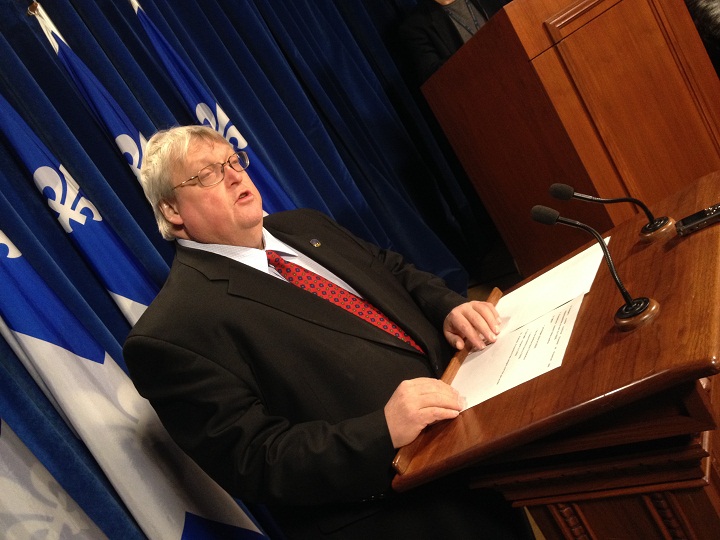MONTREAL – Hospitals and doctors in Quebec will be pushed to cut back on “unnecessary” medical tests and procedures in order to save millions of dollars in the province’s healthcare budget.

Health minister Gaétan Barrette and his department are hoping that eliminating what they consider frivolous medical exams and making sure doctors offer “pertinent care” will save $150 million.
According to Joanne Beauvais, press attaché to Barrette, any cutbacks would not force patients to accept reduced levels of care or to forego important tests, suggesting it was more about taking a common-sense approach to medical diagnoses.
READ MORE: Quebec health minister won’t tolerate so-called ‘black market’ baths
“Say I’m a perfectly healthy patient, anxious about my health in front of a doctor. It would be ridiculous to go through a whole bunch of tests and a mammography and a CT scan. Maybe I could skip the CT scan,” said Beauvais.
But Paul Brunet, president of the patient advocacy group Conseil pour la protection des malades said it was concerning that doctors would be caving to anxious patients, allowing them to undergo unneeded tests to the tune of millions of dollars.
“I thought we should have worked on that in the past 40 years, maybe we would have saved hundreds of millions of dollars,” said Brunet.

Get weekly health news
“Only now that we’re broke, we’re asking doctors to be the most professional they can?”
“In this situation, the doctor, rather than making the call and telling the patient that tests would be useless or inappropriate, does not put his pants on and do his job.”
Medical professionals aren’t necessary opposed to the attempt to create savings in the healthcare sector – they said it just depends on how it’s executed.
Spokesperson for the McGill University Health Centre (MUHC) Ian Popple said that any cutting back on medical tests would need to be carefully approached.
READ MORE: Liberals’ deal with pharmacists fails to soothe rest of health-care network
“We feel very strongly that this should be clinician led rather than being financially driven,” he said.
“This should be driven by what the healthcare professionals in our institute feel is safe. If they feel that changes can be made and it be safe for patients we’ll look at implementing that.”
However, Director General of the Quebec Medical Association, Normand Laberge, said he was worried about the government’s motivation for the “pertinent care” scheme.
“I think the way the minister focuses on cost and costs and costs is the wrong angle,” said Laberge.
READ MORE: Quebec’s premier denies limiting access to abortions
According to Laberge, cutting out excess testing on patients should be done foremost to protect patients.
“For example, passing a mammography exposes you to radiation and radiation causes cancer,” he said.
“If the test is useless to a particular patient, you don’t want to be exposed to radiation. It’s a ‘choosing wisely’ approach.”
Laberge also said that the potential for the government to impose strict rules about over-testing was worrying.
“We recommend a bottom up approach, not a top down approach, which has the risk of having general, one-size-fits-all rules,” he said.
But Beauvais downplayed fears that strict rules would be imposed or that bureaucrats would be deciding which tests were unnecessary.
READ MORE: Quebec Federation of Family Doctors reaches deal with government
She said the government was working with the Quebec College of Physicians to look into the types of tests administered unnecessarily, adding that there would not be rigidly enforced rules.
“We have asked the establishments to make optimizations,” said Beauvais.
“All the establihsments will have to make choices.”
The plan comes as part of a broader set of “optimization measures” for Quebec’s healthcare providers aimed at saving hundreds of millions of dollars.


Comments